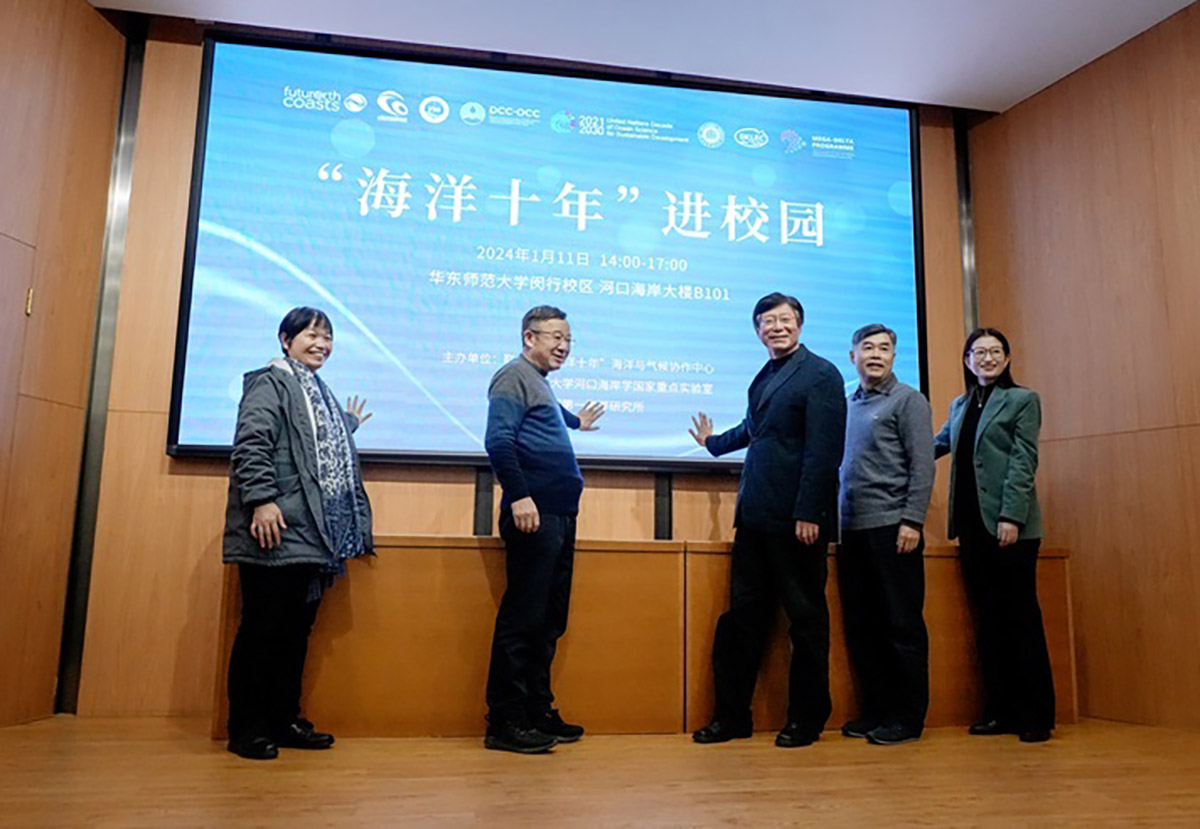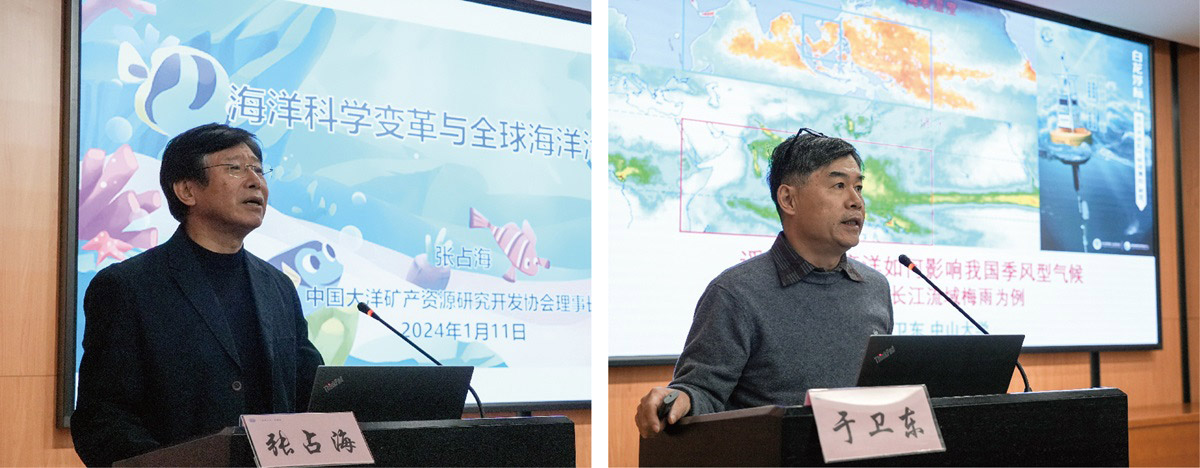
Recently, the United Nations Decade of Ocean Science for Sustainable Development (2021-2030) (Ocean Decade) Decade Collaborative Centre on Ocean-Climate Nexus and Coordination Amongst Decade Implementing Partners in P. R. China (DCC-OCC) initiated the Ocean Decade on Campus Series. The first event was jointly designed and organized by the State Key Laboratory of Estuarine and Coastal Research (SKLEC) at East China Normal University, the United Nations Ocean Decade Mega-Delta Program, and Future Earth Coasts, with the support of China Oceanic Development Foundation (CODF), and Ocean Decade Cooperation Center of China. Through lectures and a roundtable forum, the event conveyed the core concepts of the Ocean Decade and strengthened teachers' and students' knowledge of marine science and awareness of ocean protection.

Researcher ZHANG Zhanhai, Chairman of the China Ocean Mineral Resources Research and Development Association (COMRA) and former chief engineer of the Ministry of Natural Resources, delivered a lecture on "Ocean Science Transformation and Global Ocean Governance." He provided an in-depth interpretation of the global vision, goals, challenges, actions, and latest progress of the Ocean Decade, analyzing major issues of global ocean governance and the relationship between ocean science and global ocean governance. Additionally, he explored how we should engage in and respond to these challenges. He emphasized that the core concept of the Ocean Decade is transformation, highlighting its distinctive feature of integrating ocean science with global governance. Addressing key global issues, the Ocean Decade aims to drive transformative scientific solutions and policy tools for global ocean governance, promoting the sustainable utilization of the oceans and their resources, and strengthening the connection between humanity and the oceans.
The Scientific Executive Director of the DCC-OCC, Prof. YU Weidong from Sun Yat-sen University, delivered a presentation titled " How the Distant Indian Ocean Affects China's Monsoon Climate - A Case Study of the Yangtze River Basin Summer Rainfall ". The presentation provided an in-depth analysis of the impact of the Indian Ocean on summer precipitation in China's typical monsoonal climate, and the introduction of the planning and development of the Indian Ocean oceanographic observation system through observing tropical ocean-atmosphere interactions, it aimed to promote. The presentation deepened our understanding of the crucial influence of the Indian Ocean on China's climate. Prof. YU also shared his own experiences and feelings from long-term participation in international cooperation. He encouraged students to boldly step out, actively engage in international cooperation, and expressed that the DCC-OCC would actively support young scholars' participation in the Ocean Decade.

At the “Empowering Early Career Researchers” Roundtable Discussion, 5 young scientists from Indonesia, Bangladesh and China shared their experiences of studying or working in the SKLEC and the impacts of their research projects on the sustainable development of the ocean and their outlook on future research. They discussed the key skills that young scientists should possess to tackle the complex challenges of marine scientific research and the essential skills for young scientists in addressing the complex challenges of marine scientific research. The round-table forum provided a platform for young scientists from different countries and fields to share their research stories, and was a positive attempt to promote young scientists’ engagement in the Ocean Decade.
The Ocean Decade on Campus Series aim to enhance young people’s understanding of the crucial role of the ocean in achieving sustainable human development, improve their ocean literacy, and encourage more youth to actively participate in the Ocean Decade. In the next step, the series of activities will continue to bring thoughts on issues of marine scientific research and ocean governance into schools, make the Ocean Decade deeply rooted in people's hearts, and to inspire young people's interest in and concerns for the oceans through various forms of activities such as lectures, seminars, visits, practices and so on.